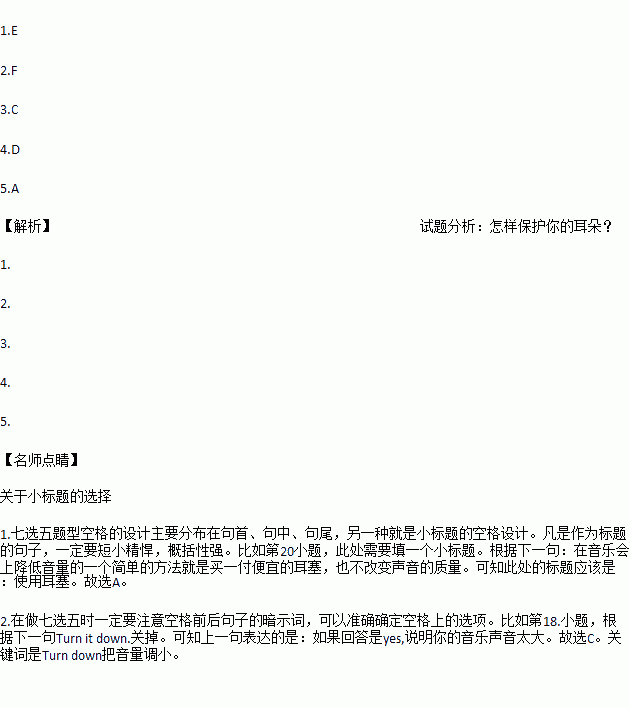题目内容
How to Protect Your Ears
You and your friends are leaving a concert on a Friday night. When you get outside, your ears are ringing. You have to shout to be heard.1. So no harm done…right?
Not quite. Temporary buzzing may be easy to ignore, but repeated exposure to loud noise will eventually cause serious--- and irreversible(无法治愈的)--- hearing loss. A new study conducted by researchers at Brigham and Women’s Hospital in Boston shows that one in five people between the ages of 12 and 19 are experiencing slight hearing loss, and one in 20 have mild hearing loss. 2.
But the good news is that there plenty of ways you can protect your ears from further damage — and still listen to the music you love:
Ask around. Put your earbuds in or your headphones on, and then ask a friend next to you whether or not he or she can hear what you’re listening to.3.Turn it down.
Buy noise-canceling headphones. A pair of earbuds or headphones that fits comfortably will limit outside noise so that you can hear your music better at lower volumes.
Take breaks. 4. So when listening to music, take your headphones off for 15 or 20 minutes and let your ears enjoy the quiet.
5.You can buy a cheap pair at any drugstore as an easy way to lower volume at concerts — or while playing or practicing your own music — without changing the quality of the sound.
A. Use earplugs.
B. Keep the volume below 70 percent.
C. If the answer is yes, your music is too loud.
D. Like every other part of your body, your ears need rest.
E. But by morning, your hearing is totally back to normal.
F. Unfortunately, there’s no way to get back hearing you’ve already lost.
G. The exposure to noise is louder and longer than in any previous generation.

